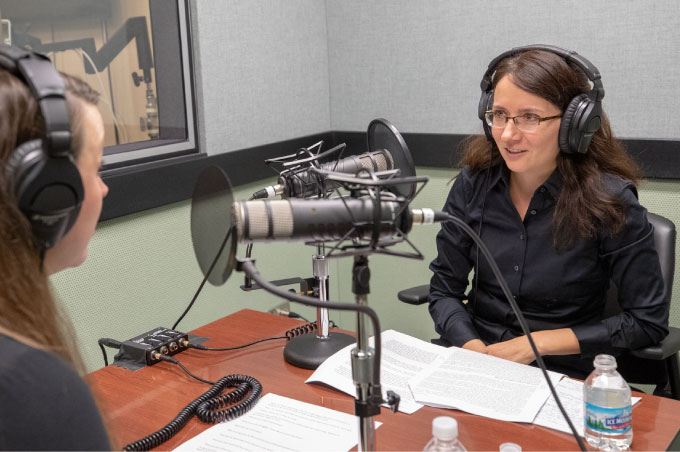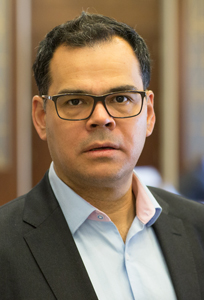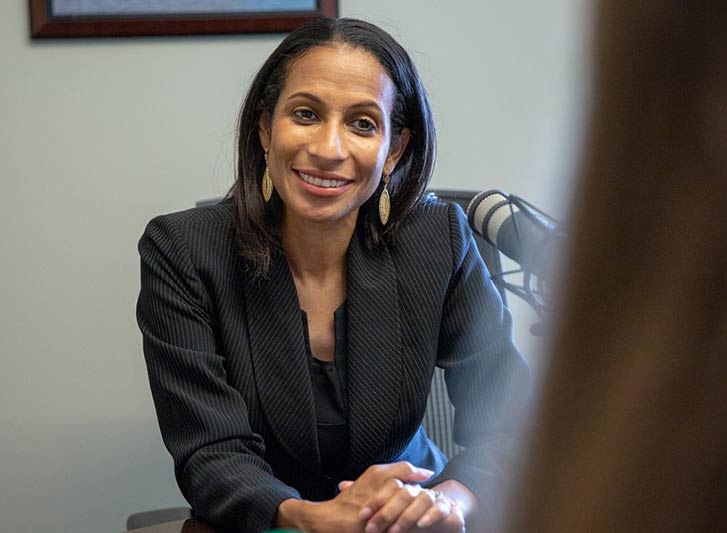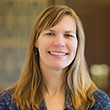Growing Up during Economic Crises Sparks Interest in Econ
Your average 11-year-old probably doesn’t spend a lot of time thinking about the economy, but some economic events leave a lasting impression even on children.
For three economists, economic crises when they were growing up in the former Soviet Union, Costa Rica and Nigeria turned their minds to big economic questions. Oksana Leukhina, Alex Monge-Naranjo and Una Osili, respectively, have spoken about how those events piqued their interest in the field of economics. This blog post draws from interviews over the past few years for the St. Louis Fed’s Women in Economics Podcast Series and for an Open Vault blog post.
The three shared at least one view that their childhood experiences helped form: Economists work to solve the kinds of issues that affected their countries.
High Inflation in the Former Soviet Union

Oksana Leukhina, right, speaks with host Maria Hasenstab for a 2019 Women in Economics episode.
Oksana Leukhina, an economic policy advisor at the Federal Reserve Bank of St. Louis, was born in the Soviet Union, which had a command economy with government-controlled prices and production. She was a child when the Soviet Union dissolved in the early 1990s, she said in a Dec. 18, 2019, Women in Economics episode. She lived through the hyperinflation and near-collapse of the payment system that followed, Leukhina said.
Leukhina’s mother, like her father, had been an engineer, but her mother changed professions to become a schoolteacher.
“I remember when she wouldn’t get paid for months and months at a time,” Leukhina said. “And so just these memories as a child kind of made me think about economics. And I wanted to understand what’s going on around me. I wanted to learn how to better design the economic system.”
High Unemployment and Devaluations in Costa Rica
Alex Monge-Naranjo was a preteen in the early 1980s when Costa Rica suffered its only major economic crisis in recent history, he said in an interview for a December 2020 Open Vault blog post.

Alex Monge-Naranjo
All the issues discussed in the media and worrying citizens were economic problems: unemployment, currency devaluations and high inflation, said Monge-Naranjo, an economist at the St. Louis Fed at the time of the interview and now a professor and head of the economics department at the European University Institute. He also serves as a research fellow at the St. Louis Fed.
People were discussing those issues with intensity every day when he was at an age to be thinking about his future career, considering becoming a doctor, mathematician or archeologist, among other professions.
Monge-Naranjo said he started seeing that there were interesting problems.
“And there were some good economists discussing issues,” he said. “And I thought that they were super smart, that they seemed to be more interesting [to me] than people in other disciplines.”
Economic Shocks in Nigeria
Una Osili was in middle school and high school in Nigeria in the 1980s, a time when the oil-exporting country was facing declining oil prices and increasing social and economic needs, she said in an Oct. 24, 2018, Women in Economics episode.

Una Osili
Many of the debates at the time centered on what the right monetary, fiscal and even exchange rate policies were for Nigeria, said Osili, who is the associate dean for research and international programs at the Indiana University Lilly Family School of Philanthropy.
“So, as a young person,” Osili said, “I listened intently to those debates, not quite understanding, but being very curious about, what does it take and what kinds of policies actually help countries basically adjust to economic shocks and what kinds of policies help foster and enhance growth opportunities for developing countries?”
Osili realized at the time that there really wasn’t a consensus, and the discussion and debate “got me quite interested,” she said.When her senior year in high school brought the opportunity to study economics more formally, she found the science and math elements interesting.
Ultimately, however, what attracted Osili to economics was “its applicability to real-world problems.”
“Economists tended to work on problems that seem to affect, at the time, countries, households and also people in their everyday lives,” Osili said. “That was very compelling to me.”
This blog explains everyday economics and the Fed, while also spotlighting St. Louis Fed people and programs. Views expressed are not necessarily those of the St. Louis Fed or Federal Reserve System.
Email Us


